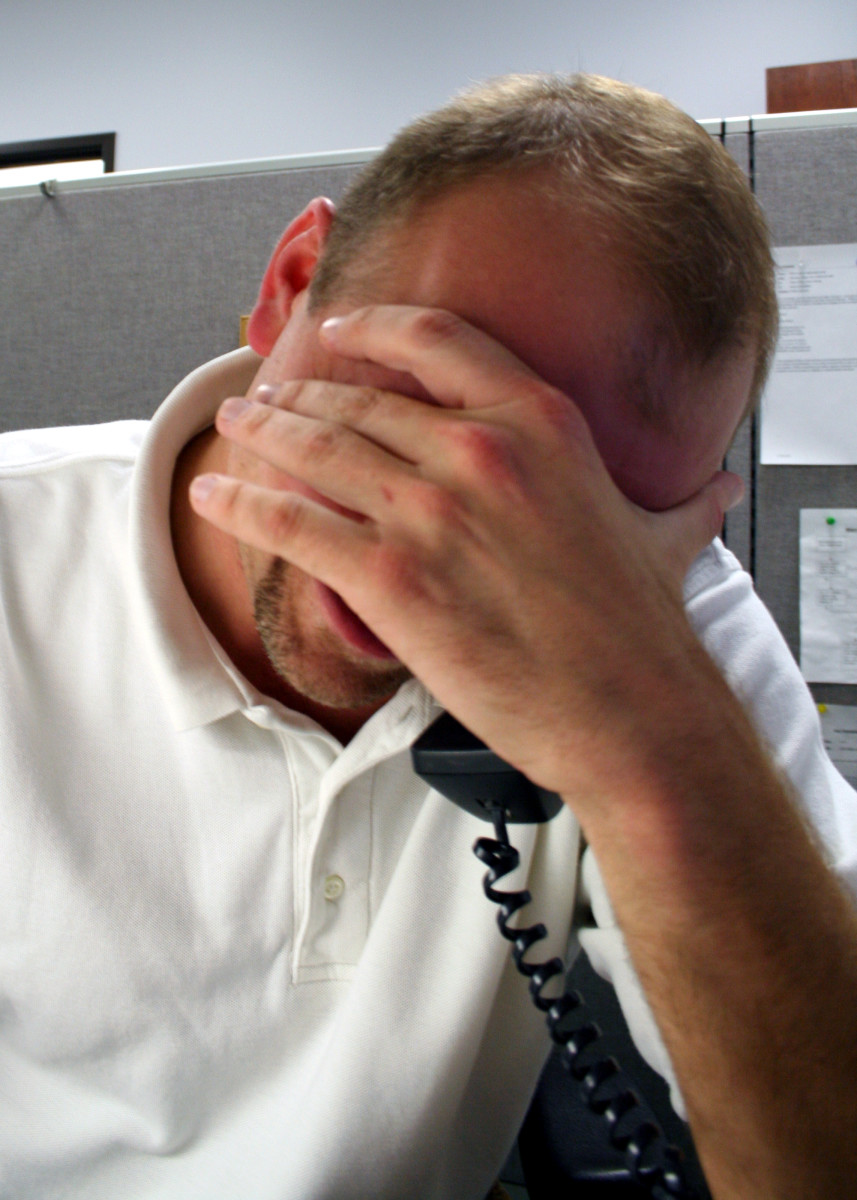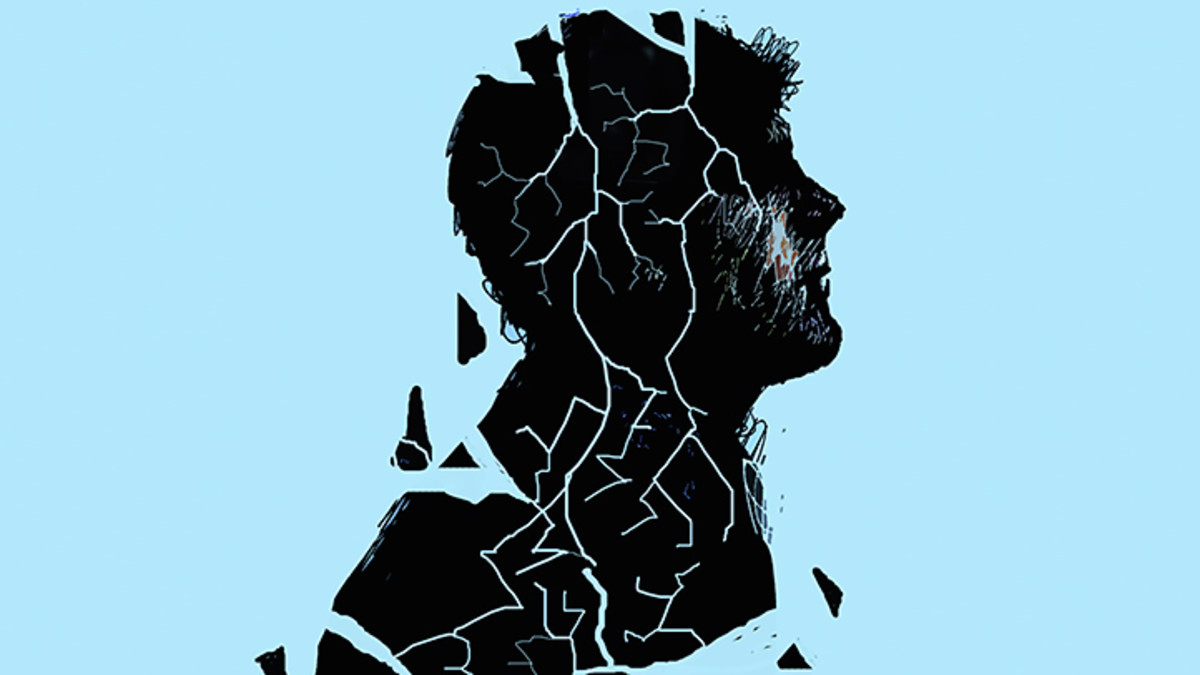How to Help a New Father Deal With Depression

Like mothers, new fathers may deal with depression after the birth of a child. Although less common than post-partum depression in mothers, this depression can be just as serious and affect both the father-child and mother-father bond. First-time fathers in particular may find themselves feeling uncertain about their role as a parent and their ability to provide for their new child. To help a new father deal with depression, listen to his concerns and help him find activities and services that will help him adjust to his new life as a dad.

Fathers and Depression
The symptoms of depression in new fathers and similar to those experienced by women. They might manifest themselves in the following ways:
- Feelings of sadness
- Withdrawal from wife/partner, loved ones, and friends
- Poor bonding new new baby
- Feelings of resentment of the new baby
- Changes in appetite (either not feelings hungry or overeating)
- Sleep problems (not being able to fall asleep at night; middle of the night waking unrelated to noise/environment) or sleeping excessively (10+ hours per day)
- Loss of interest in hobbies and work
- Difficulty concentrating
- Irritability
- Anger, particularly over minor issues
Men are, unfortunately, much less likely to acknowledge feelings of depression than women. Historically, men have been taught that they must be "tough" and simply live with feelings of distress. Moreover, the problem of postpartum depression in men has only come to light in the mental health field in the past decade, so it is easy for even doctors and therapists to overlook the very real problem of depression in new fathers.
Offer Practical Help
One simple strategy to help a new father adjust to his role and work through his depression is to give him time off--either to spend time on a hobby he enjoyed before his baby's birth or to spend time alone with his partner. One cause of depression may just be difficulty adjusting to the routine of a new baby. Having extra responsibilities, less sleep, and the simple change of having a new household member may be less overwhelming if he has a partner, parent, relative, or friend who can give him some down time.
If the father is the primary caregiver, having respite care can be particularly crucial. Adjusting to carrying out daily tasks with a new baby may be overwhelming to him, which may ultimately make him feel both depressed and inadequate. Likewise, if the new father is not getting enough sleep or is not eating a healthy diet, this can make his depression worse. Because there is a strong connection between mood and physical health, ensuring that the new father has time for adequate sleep, regular meals, and some exercise (even a short walk) can help him improve his mood and alleviate some depression.

Help the New Father Engage with Others
Helping a depressed dad find opportunities to participate in activities outside the house may help him improve his mood. If the father is spending most of his time at home caring for the child, help him find recreational activities to participate in with his child that will make him feel less isolated. With an increase in stay-at-home dads and single fathers raising young children, many areas have "daddy parenting groups." Spending time with other fathers and their children may help him develop a better understanding of his role and help him feel less alone.
This may be exacerbated by the idea that women are naturally better caregivers than men. If the new father has internalized this idea, seeing other fathers thriving as new dads can give him a boost of confidence--not to mention, a boost in his mood.
Listen to his Concerns
Although some men may feel reluctant to share their feelings of sadness, depression, or inadequacy, let him know that you are there to listen to his concerns, fears, and other emotions. Sometimes, the simple act of keeping feelings bottled up and unacknowledged can make them grow from minor concerns into depression. For example, if a father worries that he is not a good enough provider, but does nothing to acknowledge this concern, the problem may start to overwhelm him if he does not talk about it and receive validation that his efforts are good enough.
Likewise, helping a new father understand that many of his concerns and frustrations are normal can help him feel that he is not abnormal or inadequate. For example, sharing with him resources such as books, videos, or websites can help a father see that he is not alone in his struggles and indeed--his responses are quite common and not a sign of weakness or being a "bad dad." By normalizing his feelings, he may feel less alone and thus, less depressed.
When Outside Help is Necessary
Often, minor depression will subside as a father gets used the new household dynamics and child changing role as a father. However, in some cases, professional intervention is necessary. If you observe any of these symptoms, this is a sign that the father's depression is serious enough to require immediate intervention:
- Thoughts of suicide. This can manifest itself by the father talking about how his family or child would be better off without him.
- Violence or aggression of any sort.
- Inability to carry out basic tasks of daily living (for example, not eating at all, not maintaining basic hygiene, or neglecting his child's needs).
- Inability to work at home our outside the house.
Likewise, if a father has a very low mood every day or most of the day for two weeks or longer, this could be a sign that he is dealing with more than a passing depressed mood and may benefit from talking to a doctor or therapist.
Even in less serve cases, counseling or an antidepressant may help alleviate any problematic symptoms, particularly if the depression is interfering with his relationships or work performance. With an increase in awareness about the stigma men have historically felt about receiving mental health care, many practitioners are sensitive to the unique needs of fathers with depression.
Family therapy can also be effective for fathers with depression, as it can help the mother understand her husband or partner's condition and give her practical solutions for helping him get through this tough transition.
More on Depression in Men
Learn More About Postpartum Depression in New Dads
Online Resources
- NAMI | Depression and Men Fact Sheet
NAMI, the National Alliance on Mental Illness, is the nation's largest nonprofit, grassroots mental health education, advocacy and support organization dedicated to building better lives for the millions of Americans affected by mental illness. - Depression in Men: Why It's Hard to Recognize and What Helps
Depression in men isn't always easy to recognize. Learn about the symptoms, causes, and what helps. - Men and Depression
Men and women may experience depression very differently. This brochure describes common signs and symptoms, and treatment options for depression in men. - http://www.postpartummen.com/depression.htm
The Place for Men With Postpartum Depression or Other Problems With Mood After Becoming A New Dad








